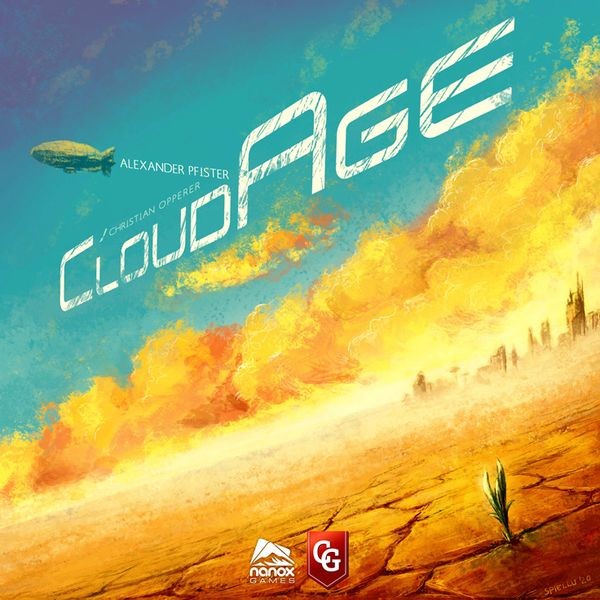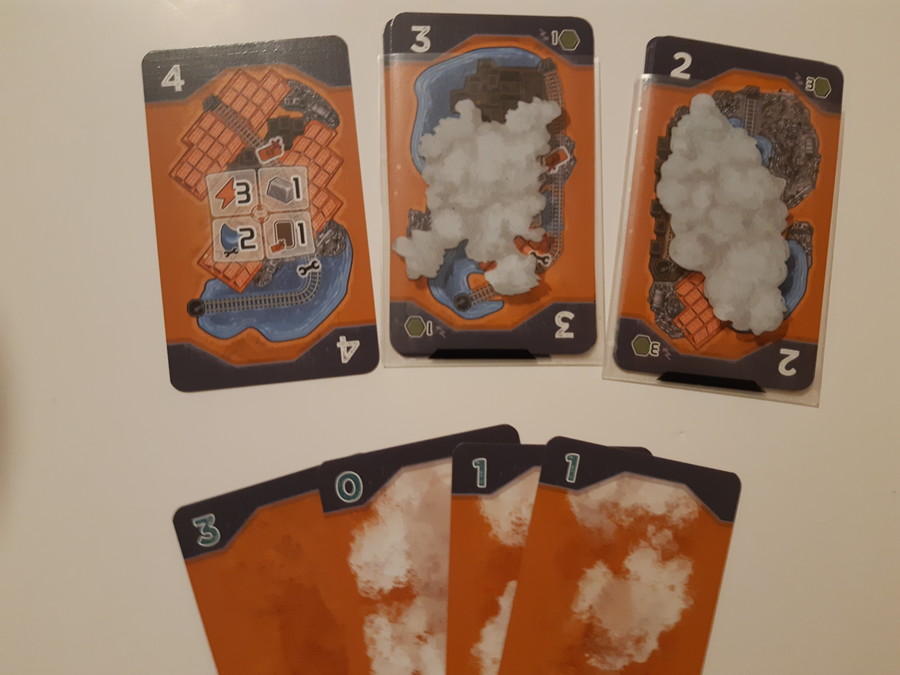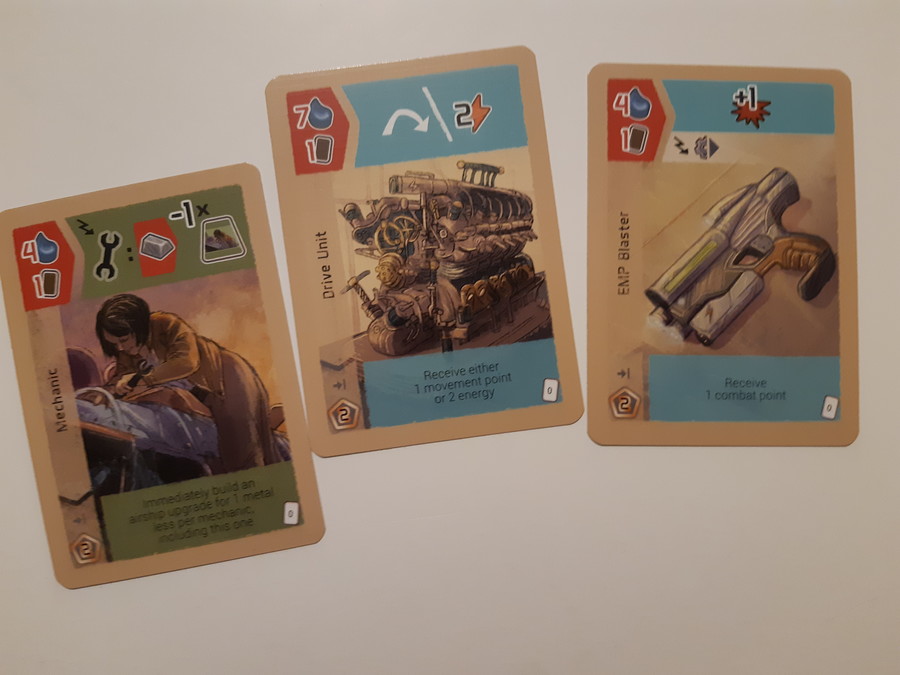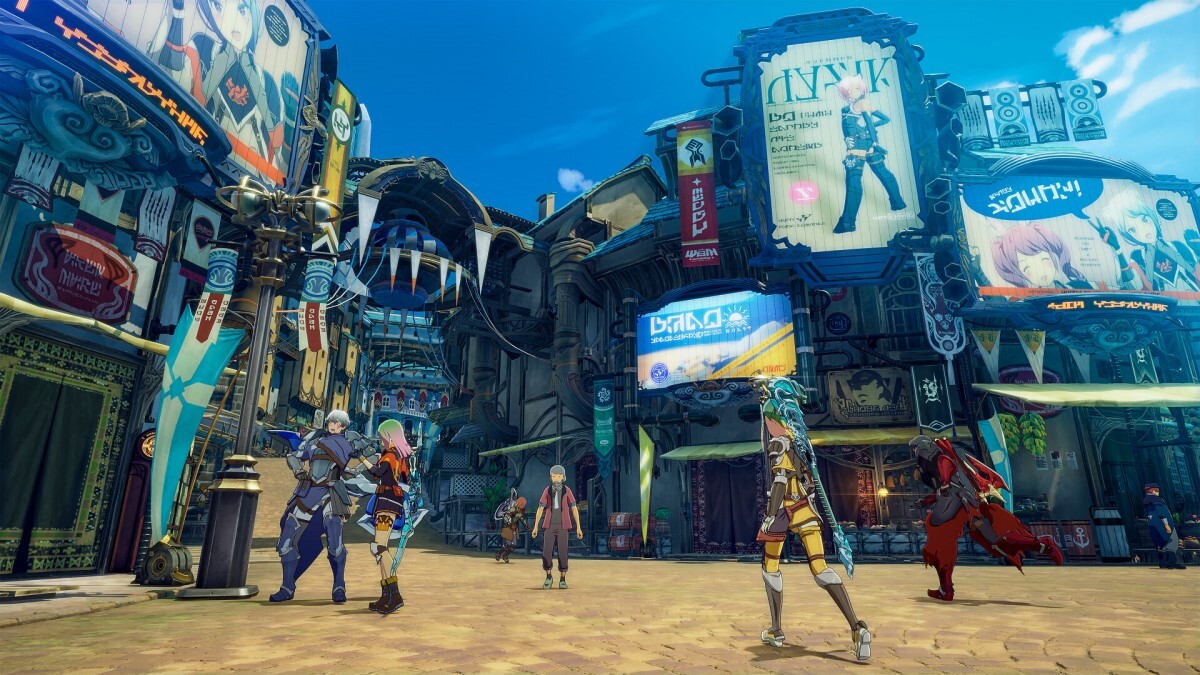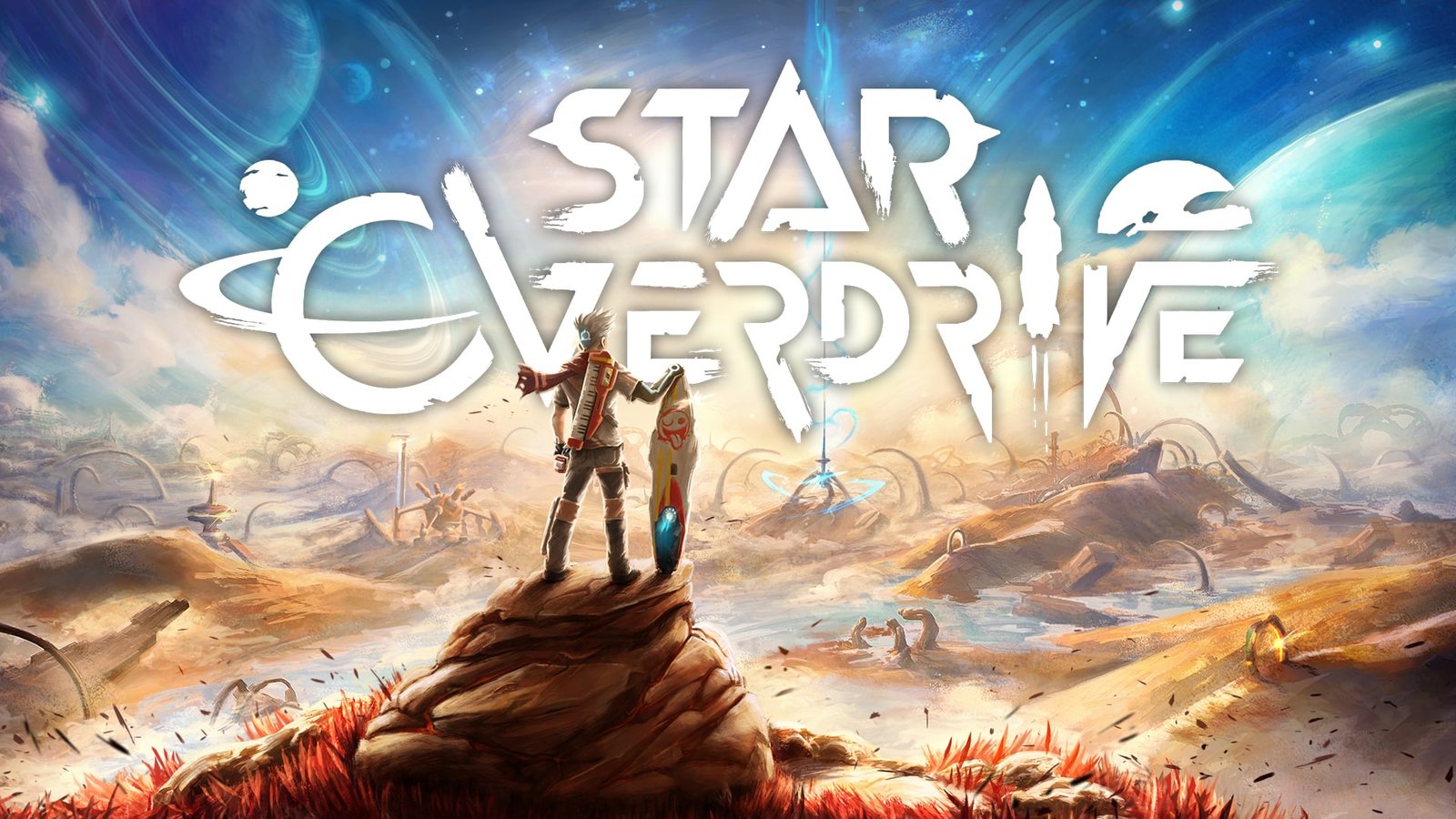Alexander Pfister is an author today identified as complex games, like the last Maracaibo. It is a vision that is somewhat restricted and above all modern. In fact, it was initially light games like Oh my good or Port royal that made it known. Even when he released his first complex game, Mombasa in 2015, it was a lighter game and it was the editing process that led to its expansion.
Cloudage is his last game released, in collaboration with Arno Steinwender, at the same time as Expedition to Newdale. Light play or complex play :)?
Cloudage is a management game in 7 or 8 rounds, depending on configuration. It takes place in a futuristic world, as players navigate a balloon over the land covered in clouds. The tour takes place in 3 stages :
Production
Each player can spend energy to get water. Next, he pulled the first two cards from his navigation deck. Less indicates how much energy or project energy they gain. The strongest determines the number of moves he can make.
movement
Everyone transports their balloon from city to city, and may pick up resources along the way (metal in particular). Upon arrival, the player can fight the militia in the city, in order to earn a reward. He can increase his combat power by spending energy to draw reinforcements from his navigation surface.
Action
In principle similar to Puerto Rico, each of them in turn does an action that opponents can follow.
The first possible action is to select a new Navigation Card from among three.
All of them are presented in a wrapper that hides a portion of the list with a cloud design. By trying to guess the card configuration, each player announces what they intend to recover as a resource. Then the card is revealed, each one gets their due and the active player adds this new move card to their trash pile.
A second possible action is project cards (by spending water) to provide different powers, or improve zepelin’s abilities.
The last action is to use Plantation tiles which, depending on the situation, get ignored by granting resources or placing them on the board for hidden resources and victory points.
As with Maracaibo, Cloudage offers a campaign mode. It is played in 8 chapters with a storyline that offers some alternatives. This campaign differs from the previous one in terms of the size of the additions. Rules sections are added, such as the Plantation tile placement action, and many Project cards will complete the basic draw. Campaign end really matches the full game.
For fans of pre-compositions in particular, I recommend two methods:
- If you have the time (it’s your game in particular)) it is to follow the chapters in order to enjoy seeing the game build and also the story (for the decision branches and the narration which, without being unusual, is a bit higher than Maracaibo).
- Other than that, especially if it’s just about knowing “what the last Pfister looks like”, the rule suggests setting up the entire game live (Scenario 3).
World single Maybe. It works with a primitive bot, but it’s surprisingly effective. However, I’m used to the single mode of Maracaibo or Blackout, which I find particularly quirky. If the goal is to reach the highest possible score, the lower level is high and you must have validated all the missions at the maximum level (and it is not easy to reconcile all of that :)).
A particularly noticeable development of this game is the sleeve and zipper system. The smart idea is that if the resource quantities are indicated numerically in the center of the map, then the entire drawing in the image is, in their proportions, with these different quantities. It works objectively (the game remains mechanical, but the theme works well) and there is something very interesting about these manipulations: we take the map, we examine it, we try to notice the details that go beyond (an icon indicating that its surface can be scrubbed?), We see that we are trying to move the card sideways a little bit In Quantum for a little bit of information: P. In general, we take back what we had hoped for. There are a few surprises, just the right amount to have a little doubt but without playing it that way.
The funny thing about this cloud system is that it will make you forget about the game itself and its richness. Alexander Pfister declared a “lighter game than Maracaibo” and for those who stop at Act 1, they may be tempted to believe that this composition is a slight arc in the author’s production.
I think it’s just the opposite.
Through his previous expert games, Alexander Pfister has been tempted to fall into the trap of what I call “Amusement Park”: a big game with lots of strategy axes, whose grip is sometimes unclear. So much so, that one wonders whether this wealth does not hide a weakness: players play almost different games (who played combat strategy in Maracaibo really cared about how he explored leaving the opponent on that path :)?).
With Cloudage, Alexander Pfister (and his companion, even if one feels a lot in Pfister’s style) seems to have taken the best light and complex games: the rules are relatively simple and there is no frills: if there are 4 resources (5 with farmer’s tiles) each has its own role, work, and interaction with the others. Strategically, along with the main axes of movement, fight or tile placement we find card placement, production record, zeplin optimization, cards that award VP according to certain actions, etc …
Shorter and more refined format than Maracaibo, many original assets (if we find a little bit of Great Western deck build or choose Puerto Rican action, in general, the game doesn’t make a noticeable impression of déjà vu or the sum of other games), richness to go and feel the freedom of movement with this Zeppelin advancing in any direction (we still always tend to go forward, but like often with Pfister, “the obvious” isn’t much)), I’m not far from wondering if that’s not the best thing about this author.
My main reservation concerns interaction, very weak a priori. But I haven’t played multiplayer much (I noticed you can mess up the odds against the tiles). Especially the impression in every part of the discovery of small ingenuity.
Ready to take off, toward the clouds.

“Tv geek. Certified beer fanatic. Extreme zombie fan. Web aficionado. Food nerd. Coffee junkie.”

